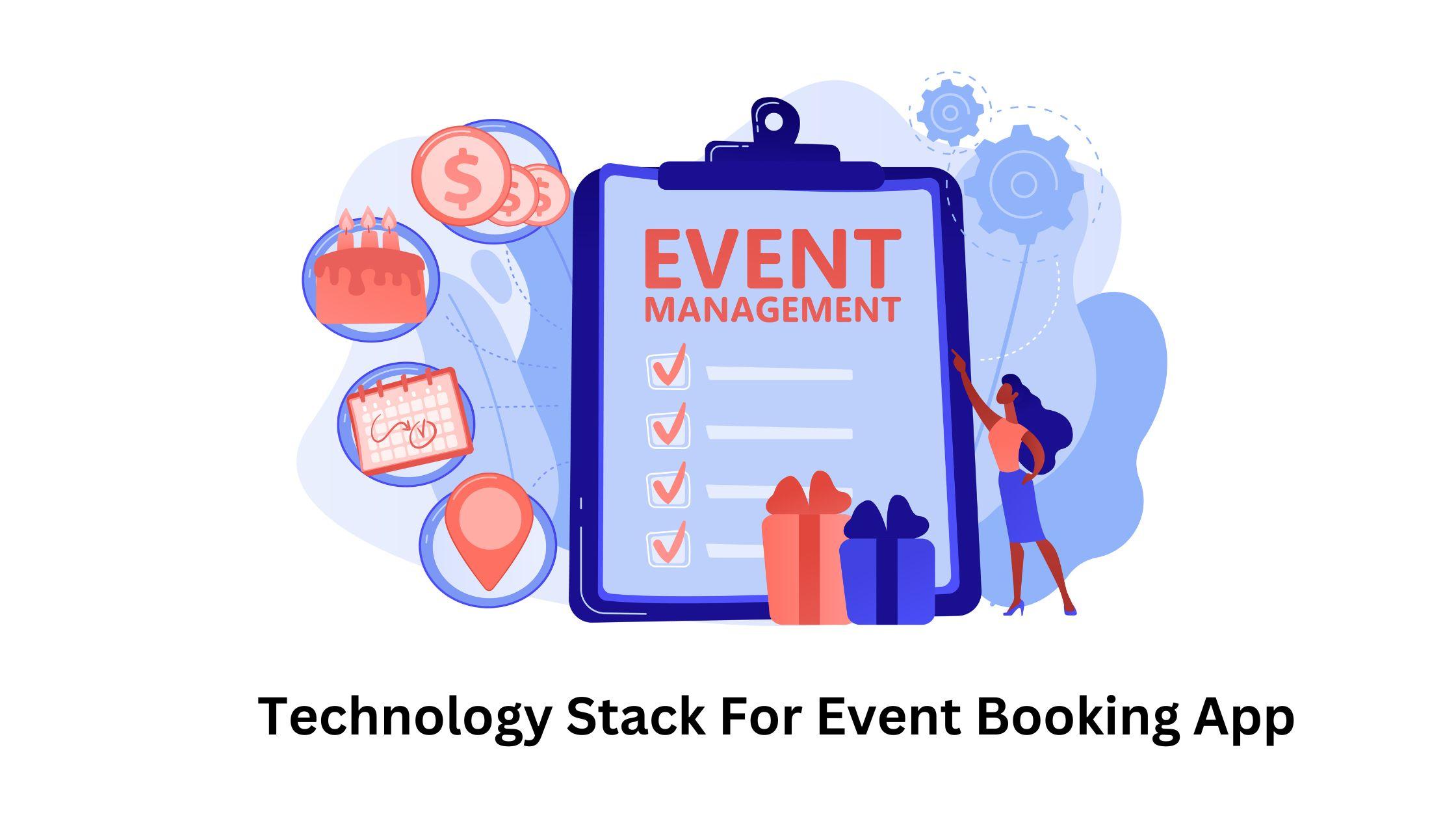In the contemporary and rapidly evolving landscape, the significance of event booking applications has surged significantly. These apps have transformed into essential instruments that empower users to explore, reserve, and effectively handle a wide array of events, ranging from conferences and concerts to workshops and sports gatherings.
By simplifying the event administration journey, these applications offer convenience to both event planners and participants alike. A pivotal aspect of crafting an event booking app revolves around the judicious choice of the appropriate technological framework. When partnering with an event booking app development company, this decision gains paramount importance.
Process Of Choosing The Perfect Technology Stack For Your Event Booking App
Understanding the Components
Prior to delving into the specifics, it's vital to grasp the fundamental elements of an event booking application and the corresponding technologies affiliated with each facet:
- Front-End Development: This constitutes the user interface through which attendees engage. It encompasses the formulation of the app's layout, user experience, and the management of user interactions.
- Back-End Development: The back-end orchestrates data, administers business logic, and guarantees seamless communication between the front-end and the server. Its responsibility extends to processing requests, overseeing databases, and managing security protocols.
- Database: The database serves as the repository for user particulars, event particulars, reservations, and more. Opting for a database capable of accommodating substantial data volumes and providing effective data retrieval and storage mechanisms is paramount.
- APIs: Application Programming Interfaces (APIs) empower your app to establish connections with external services such as payment gateways, location services, and social media platforms.
- Server: The server functions as the operational center of your application. It processes incoming requests, oversees data handling, and ensures the app remains promptly responsive.
Choosing the Right Stack
Let's now delve into the technological aspects of each component and how to make well-informed decisions:
Front-End Development:
- Framework: Opt for widely used frameworks such as React, Angular, or Vue.js. These offer streamlined development, reusability, and dynamic user interfaces.
- Language: The foundation of front-end development lies in JavaScript.
- Styling: Employ CSS frameworks like Bootstrap or Materialize to facilitate responsive and visually captivating designs.
Back-End Development:
- Language: Select a language that aligns with your team's expertise. Options encompass Node.js (JavaScript), Python (Django or Flask), Ruby (Ruby on Rails), and Java.
- Framework: Leverage frameworks like Express (for Node.js), Django (for Python), or Ruby on Rails (for Ruby) for a structured back-end development approach.
- Server: Ponder cloud platforms such as AWS, Azure, or Google Cloud for scalable deployment of servers.
Database:
- Relational Database: Opt for trusted choices like MySQL or PostgreSQL when dealing with structured data.
- NoSQL Database: For flexible and unstructured data, consider solutions like MongoDB or Firebase.
APIs:
- RESTful APIs: Embrace the simplicity and compatibility of REST APIs, widely employed for their effectiveness.
- GraphQL: Explore GraphQL for more efficient data retrieval, allowing clients to precisely request desired data structures.
Server:
- Hosting: Consider platforms like Heroku, AWS, or DigitalOcean for dependable and scalable hosting resolutions.
- Web Server: Utilize Nginx or Apache as reverse proxies, adeptly managing client requests and efficiently routing them to the relevant server.
Considerations for Selection
Scalability: Choose technologies that can handle your app's growth without compromising performance.
Security: Prioritize security measures, such as encryption, authentication, and authorization, to protect user data.
User Experience: Opt for frameworks and technologies that enable smooth and interactive user experiences.
Developer Expertise: Select technologies that your development team is familiar with to accelerate the development process.
Budget and Resources: Keep in mind the costs associated with the chosen technologies, including hosting fees, licensing, and development resources.
Conclusion
In the ever-evolving landscape of app development, selecting the ideal technology stack for your event booking app can significantly impact its success. Striking a balance between scalability, security, user experience, developer expertise, and available resources is pivotal. However, translating your vision into reality requires more than just the right technologies—it demands skilled hands to bring it to life.
Consider the option to hire dedicated mobile app developers who possess a deep understanding of the chosen technology stack. Their expertise can accelerate the development process, streamline decision-making, and ensure that your app aligns seamlessly with your goals. With their guidance, you can navigate the complexities of front-end and back-end development, create an engaging user experience, and establish robust security measures.
Read Also:
Top Frameworks for Cross-Platform Mobile App Development
Best Practices for Angular UI/UX Development
9 Tips To Hire Kotlin App Developer
Technology Stack For Car Rental Reservation System
